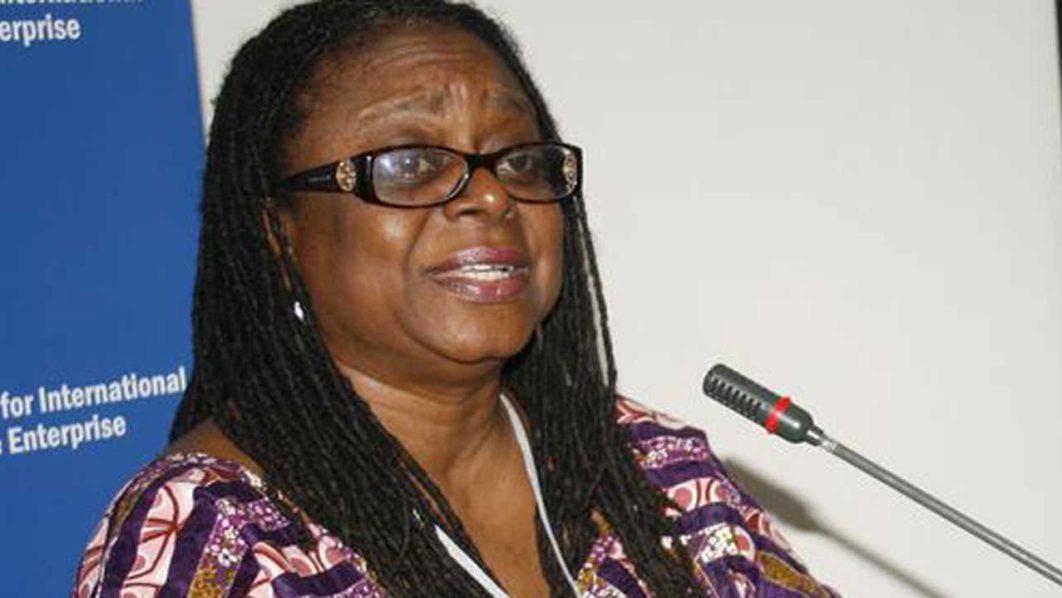
The president, LCCI, Mrs Toki Mabogunje, explained that to drive MSMEs and the business community, Nigeria’s regulatory processes and policies must be effective, efficient, transparent, accommodating, supportive, business-friendly, and most importantly, promote private sector development.
Mabogunje at a public-private dialogue webinar to launch a survey report on transactional accountability, process consistency, and operational transparency-a report on FIRS it conducted with Centre for International Private Enterprise (CIPE), said the session aims to seek ways on how the public and private sector can collaborate in strengthening the quality of the nation’s regulatory processes as a way of supporting Small and Medium Enterprises (SMEs).
“We consider this engagement very pertinent considering the strategic importance of SMEs in the Nigerian economy,” she said.
According to her, MSMEs account for half of the overall economic activities in Nigeria and contribute as much as 75 per cent to employment in Nigeria, stressing that a significant fraction of businesses in the country belongs to the SME category.
She noted that the quality of regulatory oversight is a key factor in the business environment, saying that businesses need regulatory support to survive and thrive in the operating environment.
While commending the Federal Inland Revenue Service (FIRS) for their effort in promoting ease of doing business which she said is evident by the 15-point progress of Nigeria’s placement in the global Ease of doing business ranking from 146th in 2018 to 131st in 2019, she called for more work to be done.
She however acknowledged the new finance act of 2020 focusing on small businesses through the granting of some tax relieves evidently intensifying support for SMEs to enable them to function at optimal capacity is very essential at this critical period.
She emphasized that the task of strengthening the Nigerian regulatory framework is a collective responsibility, saying that business organizations, chambers of commerce, trade associations, other stakeholders, Ministries Department and Agencies (MDAs) all have a significant role to play in promoting the ideals of transparency, efficiency, and equity in the operational framework of our regulatory agencies.
Also speaking, the Chairman, Federal Inland Revenue Service (FIRS), Muhammad Nami, represented by the Director, Policy, FIRS, Mathew Gbonjubola, said that there are certain gaps in the survey, saying that there are some inconsistencies in the report with inappropriate conclusions and recommendations.
He said on the issue of payment of bribes, the report took a one-sided view of a very serious corrupt practice called bribery, saying that a taxpayer who has complied legitimately have no reasons to pay bribes.
“There are some elements in this report that as a service, we cannot accept and therefore we reject it, but we must also assure you that FIRS is willing to collaborate with all researchers and even with this report, we are willing to dialogue with you. A taxpayer that has disclosed his income, profits, cost and paid his tax at the due time would not need to pay a bribe to anybody.
“I am not justifying anybody receiving or taking bribes in any way, but when we look at certain issues, there are always two sides of a coin. I believe this is the very first version of this report and I believe there would be more surveys and we would have learned from this one to address these issues,” he added.
The Executive Director of Integrity, Soji Apampa on his part, added that businesses especially SMEs are operating in a zone he described as ‘weak governance’, maintaining that companies want to be left alone to self-regulate, but stressed that in the Nigerian setting, self-regulation is a challenge.
He stated the need for a collective action where companies continue to work hard at self-regulation, adding that civil society; the business community, and the government are working together to make regulation work in the public interest.
The Country Director, CIPE, Omowunmi Gbadamosi, said FIRS’ appropriate response to the interactive forum is a desire to learn about the actual experience of SMEs in their interface with the agency particularly on issues of informal payment in the actual cost and time of transaction with a view to improving its processes and sharing required information with the business community.



